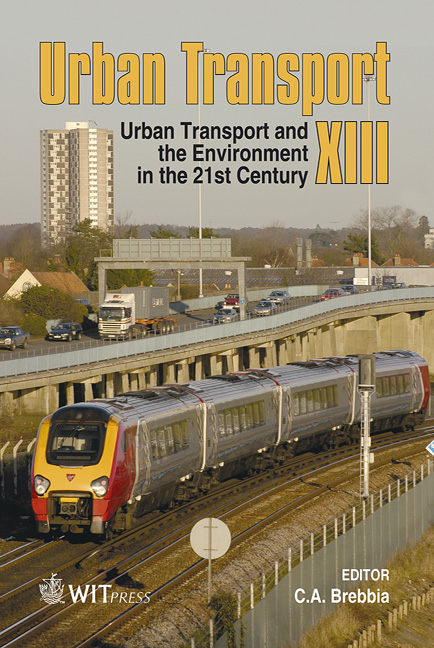Research Into The Impact Of Biodiesel Usage In Transport On Sustainable Development
Price
Free (open access)
Transaction
Volume
96
Pages
7
Published
2007
Size
517 kb
Paper DOI
10.2495/UT070471
Copyright
WIT Press
Author(s)
Z. Bazaras, A. Kersys, R. Kersys, N. Kersiene & R. Raudys
Abstract
Research into the use of alternative fuels such as rapeseed methyl ester (biodiesel) in the transport sector was performed on the basis of the estimated indicators for evaluating the impact and information of practical investigations. The main pollution sources were identified and it was determined that the priority pollutants were CH, CO, CO2, NOx and SO2. To calculate these pollutants’ dispersion ISO 14001 is used to create an evaluation system and to select and pick up the appropriate data for the urban transport system CALPUFF model. Analysis of the impact of biodiesel usages in transport on sustainable development is presented in this paper. Keywords: sustainable development, environment, biodiesel, air pollutants. 1 Introduction Development of society to provide opportunities to satisfy the welfare of present and future generations by harmonizing environmental and economic issues, without exceeding allowable limits of environmental impact, are the main goals and tasks formulated in the Lithuanian National Sustainable Development Strategy. The environmental challenges faced by Europe’s urban areas are serious and have significant impacts on health and economic performance [1]. Current trends in some issues, such as air quality, are heading in the right direction although even here, nearly half of all EU citizens live in urban areas where existing air quality limits are breached with consequent impacts on human health. The solution of ecological problems on the international level influences the development of new technologies, especially of a transport system.
Keywords
sustainable development, environment, biodiesel, air pollutants.





